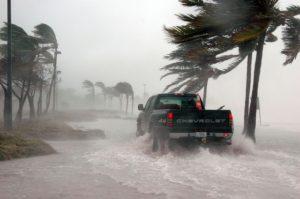- The Impact of Hearing Aids on Veterans’ Lives - February 15, 2024
- Hearing Health: A New Year’s Resolution for a Vibrant Life - January 16, 2024
- Unraveling Misconceptions About Hearing Loss - December 12, 2023
With all the hurricanes, earthquakes, and fires that have been plaguing the world lately one cannot be prepared enough. We all know 
Think about the which natural disasters can occur in our area: Tornadoes, fires, blizzards, floods, and rarely an earthquake are what we think of in Wisconsin. For those of you who spend part of your year in Florida you need to be prepared for hurricanes and if in California—earthquakes.
Tips for disaster preparedness:
- Make sure that your hearing aids are insured for loss and damage coverage. Hearing aids usually come with some insurance when purchased, but it may need to be renewed and if it can’t be renewed you may want to have it insured by an inland marine or personal articles policy. Check with your hearing aid care provider to see if your aids are covered.
- Have have a shelter-in-place plan and a conveniently located emergency kit prepared in case you need to leave your home suddenly. When dealing with tornado or fire you may have to evacuate your home quickly. You should have everything you need to make sure your hearing aids continue to work in an emergency so you can hear instructions. Your emergency kit should include: a one-month supply or more of batteries, hearing aid cleaning tools, a hearing aid dry kit, a waterproof container storing the hearing aids, hearing aid provider’s contact information, batteries and chargers for any assistive listening devices you may need, flashlight with batteries, and of course a pen and paper.
- If you have a moderate to severe hearing loss you may not hear the local Sirens alerting you to a tornado or other emergency, if you are not wearing hearing aids. Those with hearing loss can find it difficult to hear alerts or understand instructions. An NOAA weather alert radio with strobe lights, bed shakers and text alerts can keep you informed, as well as wake you in the middle of the night to alert you of potential threat. You can also sign up for alerts on your mobile phone through EmergencyEmail.org. There are some alerting devices available to work with mobile phones as well. Don’t rely on the emergency alerts that scroll across the bottom of your television screen; if you use closed captioning these messages can sometimes be blocked from your view. If your home catches on fire there is a good chance you will not hear your smoke alarm, especially if you are sleeping. Having a smoke alarm system that alerts you with strobe lights and beds shakers is essential as well.
- Ask a neighbor, friend, or relative to alert you in the event of an impending disaster. Most communities now have CERT programs; signing up for the one in your area lets volunteers who might be out helping after a disaster know that you have hearing loss and might need special assistance. You can also sign up “Reverse 911 Alerts”. Go to: http://www.safetyinformed.org which places calls to your mobile phone in case of a weather-related or other emergency. This is a free service. If you do not have a mobile phone you may want to purchase one for safety reasons. If you have hearing aids, consult with your hearing aid provider to find out which phone will work the best with your hearing aids.
- If you have a hearing service dog, make sure your emergency kit contains a supply of food and a copy of his service animal ID, so the Emergency shelters will let your dog, and a leash and collar to ensure he doesn’t accidentally become separated from you.
- If you have a child with hearing loss, make a family plan emergency plan. Role play what to do in various emergency situations. Teach your child what to do and how and whom to ask for help if you become separated and his hearing device or implant stops working. If your child is home alone for a period during the, ask a neighbor, friend or family member to check on him to make sure he is safe and informed.
Welsch Hearing Aid Company of Sheboygan can help you choose which alerting system is appropriate for your hearing needs. Dial 452-0213 or 1-800-924-2101 to schedule a FREE consultation today.
Information for this article was taken from “Disaster preparation for people with hearing loss” by Lisa Packer, staff writer for Healthy Hearing | Monday, March 23rd, 2015
